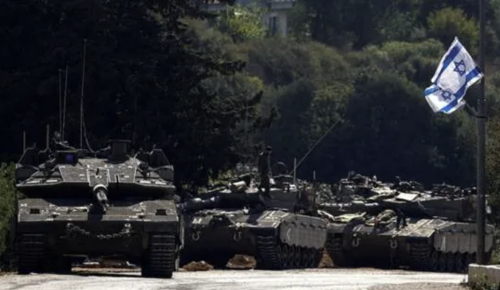Tensions remain high between Israel and the international community regarding the withdrawal of Israeli forces from southern Lebanon.
Despite the French initiative aimed at facilitating an accelerated withdrawal, Israel rejected this proposal, choosing to maintain a military presence in five strategic areas, beyond the initially planned deadline.

A French initiative to guarantee the Israeli withdrawal
At an international conference on Syria in Paris, the French Foreign Minister, Jean-Noël Barrot, announced that France had developed a proposal aimed at ensuring an orderly withdrawal of Israeli troops while preserving the stability of the region. The initiative recommended that soldiers from the United Nations Interim Force in Lebanon (UNIFIL), including French military personnel, be deployed in these sensitive areas to facilitate a secure transition.
« We have worked on a solution that addresses Israel’s security concerns while allowing for a complete withdrawal, » said Mr. Barrot. According to him, this approach had the support of the United Nations and constituted a credible alternative to a prolonged presence of Israeli forces.
Israel remains firm in its position.
Despite these diplomatic efforts, Israel rejected the French proposal, opting instead to extend its presence at five strategically deemed sites. This decision comes as the initial withdrawal deadline, set for January 26 as part of a ceasefire negotiated by Washington in November, had already been postponed to February 18.
Israeli public television reported that the United States had given its approval for a « long-term » Israeli presence in southern Lebanon. In addition, diplomatic sources have confirmed that Israel has made an official request to extend its presence in these areas by an additional ten days.
A tense situation on the ground
Since October, Israel has been conducting military operations against Hezbollah in southern Lebanon in response to the terrorist group’s aggressions. The ceasefire agreement negotiated under the auspices of the United States included a dual commitment: on one hand, the gradual withdrawal of Israeli troops, and on the other hand, the departure of Hezbollah fighters as well as the deployment of the Lebanese army in the region.
However, the implementation of this agreement is encountering obstacles. Israel insists on the necessity of maintaining control over certain strategic points to prevent Hezbollah from retaking these positions after its departure. For its part, France, supported by the UN, is trying to convince Tel Aviv that a replacement by UNIFIL forces could guarantee security while respecting international commitments.
An Israeli position influenced by experience
Israel’s reluctance to accept the French proposal is explained by a history marked by international guarantees that have never ensured its security. In the past, such agreements have been concluded to stabilize southern Lebanon and prevent Hezbollah from re-establishing itself there. Yet, each time, these commitments have been betrayed: neither UNIFIL nor the Lebanese army have been able, or willing, to prevent the terrorist group from regaining ground, rebuilding its military infrastructure, and rearming, often under the complicit gaze of Beirut.
Faced with this reality, Israel can no longer afford to base its security on empty promises, dictated by political considerations rather than strategic imperatives. The French proposal, although seemingly balanced, does not guarantee that Israel will not find itself, in a few months, facing an increased threat, with a stronger and better-armed Hezbollah.
By refusing to quickly abandon strategic positions, Israel is learning from the past: the security of its people cannot be entrusted to forces that, through ideology or incapacity, have already failed in their mission. As long as the international community does not show a genuine willingness to prevent Hezbollah from becoming an immediate threat again, Israel is right to resist diplomatic pressures and prioritize an approach grounded in the reality on the ground rather than uncertain political assurances.
Alain SAYADA for Israel News




